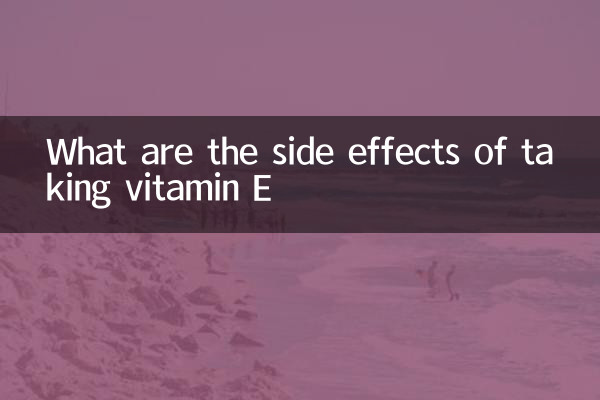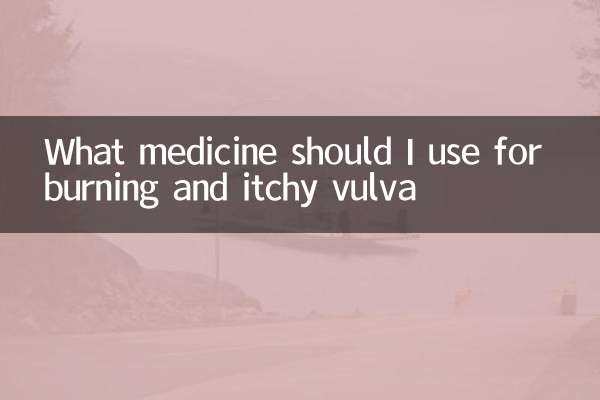What are the side effects of taking vitamin E
Vitamin E is a common fat-soluble vitamin that has antioxidant, protective cell membranes and enhance immunity. However, excessive intake or improper use of vitamin E can cause a range of side effects. The following are popular discussions on the side effects of vitamin E and structured data compiled on the network in the past 10 days.
1. Common side effects of vitamin E

Here are the side effects that may arise from excessive or long-term use of vitamin E:
| Types of side effects | Specific performance | Probability |
|---|---|---|
| Gastrointestinal discomfort | Nausea, diarrhea, abdominal pain | medium |
| Increased bleeding risk | Coagulation function decreases, wound healing slowly | High (especially combined with anticoagulant drugs) |
| Headache and fatigue | Dizziness, fatigue | Low to medium |
| Allergic reactions | rash, itching | Low |
| Hormone levels disorder | dysfunction of thyroid gland | Low (long-term high dose) |
2. Daily recommended intake of vitamin E
Different groups of people have different demands for vitamin E. The following are the daily intake recommended by authoritative institutions:
| crowd | Recommended dosage (mg/day) | Maximum tolerance (mg/day) |
|---|---|---|
| Adults | 15 | 1000 |
| Pregnant woman | 15-19 | 800 |
| Lactation women | 19 | 1000 |
| Children (1-3 years old) | 6 | 200 |
3. Which groups of people need to be cautious about supplementing vitamin E?
The following groups should pay special attention to side effects risks when supplementing with vitamin E:
1.Those taking anticoagulant drugs: Vitamin E may enhance anticoagulant effects and increase bleeding risk.
2.Heart disease patients: Some studies have shown that high doses of vitamin E may increase the risk of heart failure.
3.Cancer patients: In some cases, vitamin E may interfere with the effects of radiotherapy and chemotherapy.
4.People before and after the operation: It is recommended to stop taking high-dose vitamin E two weeks before the operation.
4. How to safely supplement vitamin E?
1.Priority to obtain from food: Nuts, seeds, vegetable oils and leafy greens are rich in natural vitamin E.
2.Avoid long-term high-dose supplementation: Dosages exceeding 400 IU/day may increase the risk of side effects.
3.Pay attention to drug interactions: Consult a doctor if you take drugs such as aspirin and warfarin.
4.Choose natural vitamin E: d-α tocopherol has higher biological activity than synthetic (dl-α tocopherol).
5. Expert suggestions and latest research
According to a recent study published in the American Journal of Clinical Nutrition:
• Long-term daily intake of more than 400 IU of vitamin E may increase the risk of prostate cancer
• Vitamin E supplements have limited antioxidant benefits for healthy people
• Coupled with vitamin C may reduce the incidence of certain side effects
Harvard Medical School recommends: Unless a doctor confirms that the deficiency is, healthy people do not need additional vitamin E supplements.
Conclusion
Although vitamin E is an important nutrient, the concept of "more the better" is wrong. Only by reasonably controlling intake and paying attention to the safety of medication can we give full play to its health benefits and avoid side effects. Before considering vitamin E supplements, it is recommended to consult a professional physician or nutritionist.

check the details

check the details